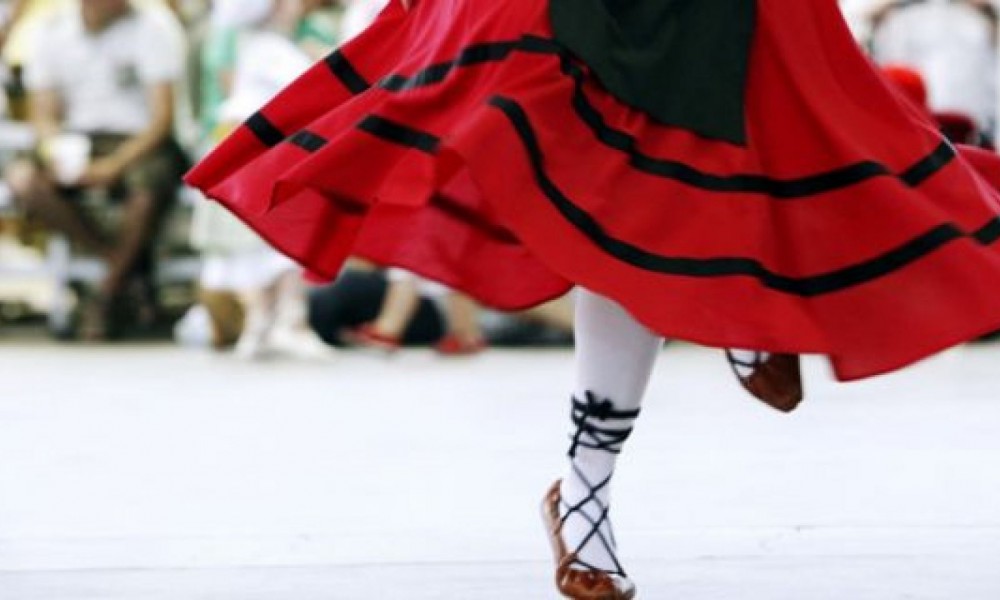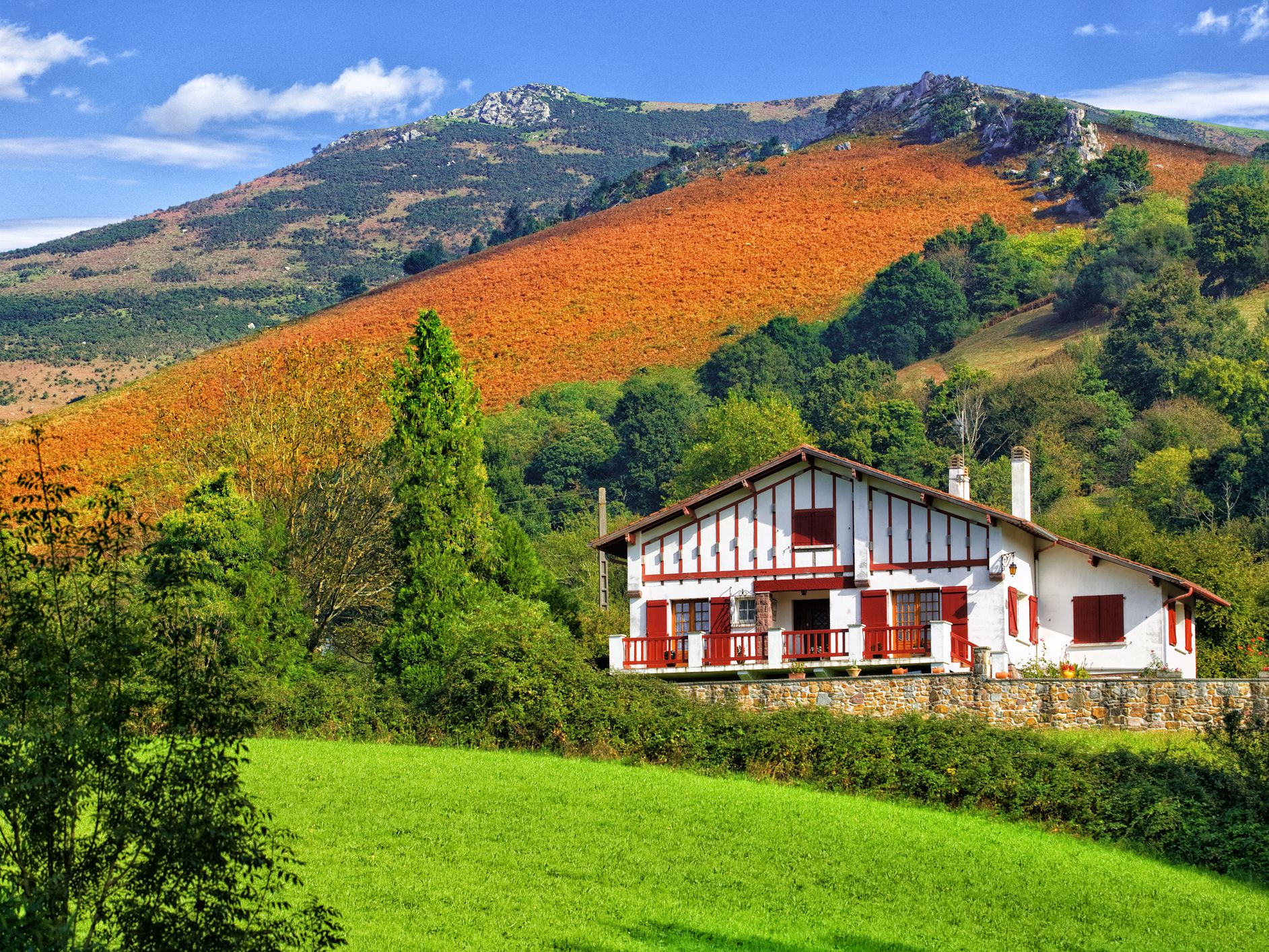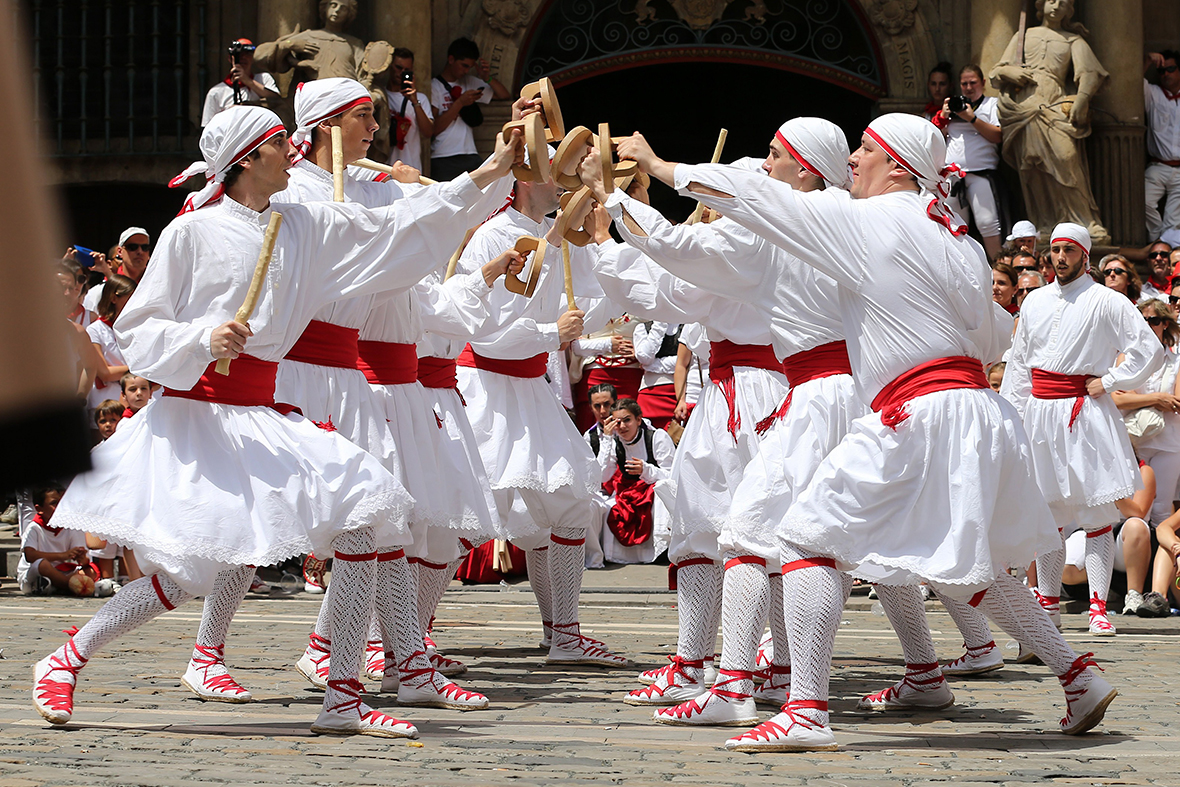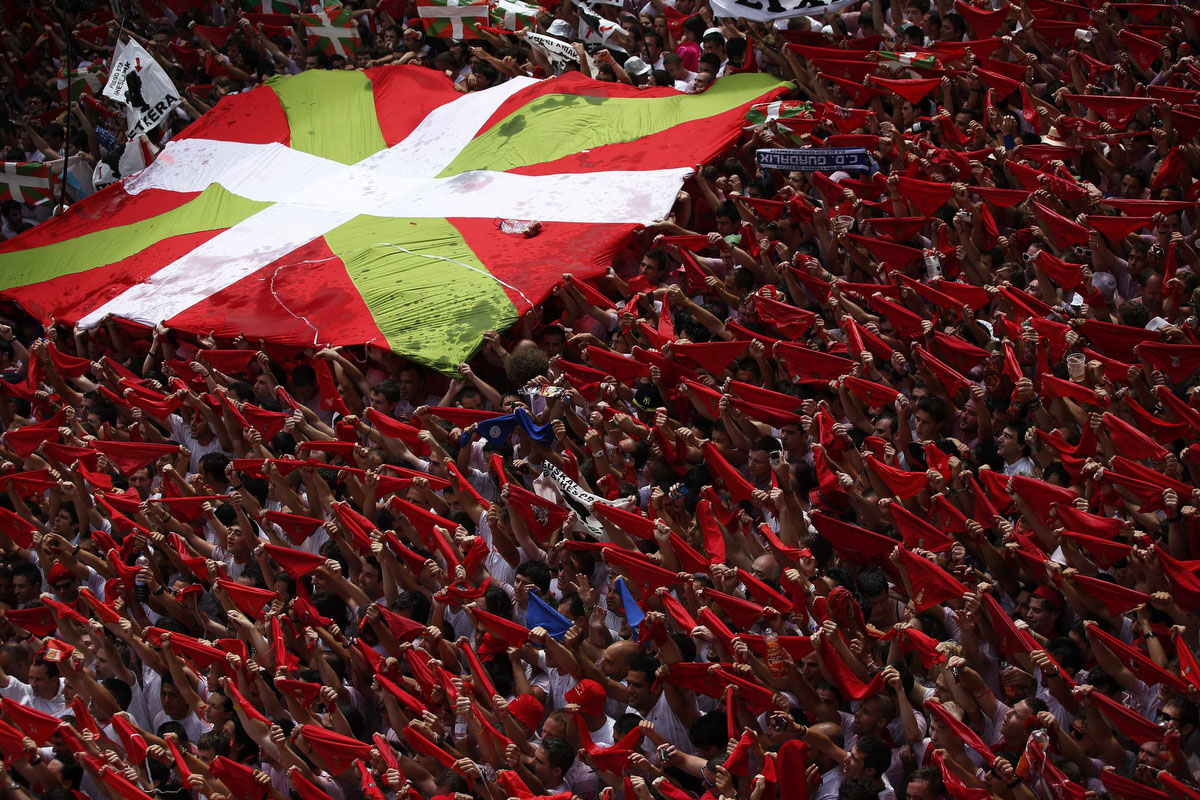Basques: Between France and Spain

If the Catalans want to exit, it is primarily due to the fact that their region is the richest in the country, earning both from industry and tourism. However, the Basques living in the north are rather different from the Spaniards by mentally and even genetically. They are unique people - a constant source of controversy for the world's geneticists and biologists, since their origin is still under fierce debate. Some scientists, though being not of the Basques descend, claim that inhabitants of the Basque Country are the first people who appeared in Europe. Others say that they are descendants of Africans. Others still vehemently call them the Pyrenees Jews.
Read also: On the catwalk: Spain
The truth, probably, lies somewhere in the middle, so to avoid confusion, it is better to tell about the Basques the facts which are beyond debates, and in due order. Numbering nearly three million today, they are dispersed in the far north of Spain and south-western France, forming an informal state, the so-called autonomous community Basque Country. Remarkably, the people who live there, refer to themselves first as the Basques, and then as the Spanish or the French, they are genetically different from their neighbours. Apart from these, about 15 million people worldwide, mainly in South America, have similar chromosomes and connections in their DNA. Photo tripsavvy.com
Photo tripsavvy.com
The national pride of this ethnic group is "Euskara", the Basque language. It is thanks to mother tongue, that somewhat hemmed on all sides by other nationalities, the Basques managed to survive not only during the Dark Ages, but in the twentieth century, when the Franco regime in Spain strongly fought against all forms of cultural wealth and distinction. By the way, in the twentieth century the Basques became known throughout the world as they were the only ones in Spain who long and fiercely resisted Franco, leading the guerrilla struggle and founded a paramilitary organization Euskadi Ta Askatasuna or ETA, which fought for the preservation of the people. In general, the Basque Country is very proud, but quite tolerant, its residents have always loved quiet and slow-paced "pre-mountain way of life, being engaged into farming, crafts and enjoying beauty of the surrounding Pyrenees. Thankfully, almost as soon as Franco's regime fell, ETA started negotiations and nowadays no one remembers about terrorist attacks and confrontations in Spain, and the Basques help the Catalans establish good relationship with Madrid, acting as intermediaries. Photo ibtimes.co.uk
Photo ibtimes.co.uk
Today, the Basques live peacefully with their neighbours, content with their own "virtual" country and the rights of broad autonomy for their region, because now no one oppresses nor their language nor mentality. As times change, so does the nature of their activities: a lot of inhabitants of the Basque Country in recent decades moved to big cities - Bilbao, San Sebastian, Vitoria-Gasteiz and got engaged in industry, technology and business. Today, farming and life away from civilization is no longer a core activity for the region. Moreover, after having normalized their relations with both the Spanish and the French, the Basque Country has become an important tourist destination in Europe. Visitors come there not only to see modern and technologically advanced cities with their old areas and Catholic village affecting with their beauty and harmony, inhabited by very pious and quiet people. Photo buber.net
Photo buber.net
The second national pride of the Basques after their language and the main tourist attraction is their national cuisine. According to recent estimates, in the territory of the Basque Country is located the world's most restaurants with Michelin stars, if the number of restaurants is divided into the area occupied by them. Due to the favourable location, the Basques do not deny themselves the opportunities to feast on truffles, seafood, tender meat, vegetables and mushrooms. Cuisine is the second religion, and it certainly deserves a separate article. As a confirmation of our words, at least have a look as the most accessible analytics from which you can see that the Basques spend on food more than residents of any other region of Spain, though far from being the richest, that means that they really enjoy food. Interestingly, the best cooks are men, and they are revered by the people as well as priests or athletes and celebrities glorifying the region. The local chefs have even their own professional community Txoko, where the entrance is forbidden to women. Photo keyweek.com
Photo keyweek.com
It is difficult to say what season is the best time to visit the Basque Country, because the mild climate makes this land incredibly pleasant for examination in any season, especially since each of them is beautiful in its own way and is rich when it comes to the food. The Spanish part of the Basque Country has three airports, and rail links to other parts of the country are perfectly adjusted, so it is a crime not to visit the region. Mostly due to bitter struggle with the capital authorities in the last century, Bilbao and San Sebastian are not so much popular and advertised as Barcelona or Valencia, but the Spaniards and the Basques have long ago found a common language with neighbours and forgotten past offences, so now they can visit each other's homes. The foreigners are welcome to explore this country and its interesting and proud inhabitants. And, of course, we have to confess, to explore and enjoy local food!
Interesting Facts:
The Basques have their own Santa Claus, his name is Olentzero. This cute old man does not live at the North Pole, but somewhere in the local mountains, and he brings gifts to children and adults on Christmas Day. Olentzero likes milk and wine, and these gifts are usually left for him at threshold by parents.
The main football team of the region is Athletic from Bilbao. Even in modern times, when football became international, and each team has athletes from around the world, the "athletics" continue to form its team only from the local guys. At the same time their club shows a very decent results both in the Spanish league and in European competition.
Basque Country boasts a variety of cultural and tourist attractions, but one of them is especially significant – it is Vizcaya Bridge, or as it is called "transporter bridge" across the River Nervión. It was even listed as a World Heritage Site by UNESCO, since the work of the mechanism deserve true admiration.
Cover photo foxnews.com





















